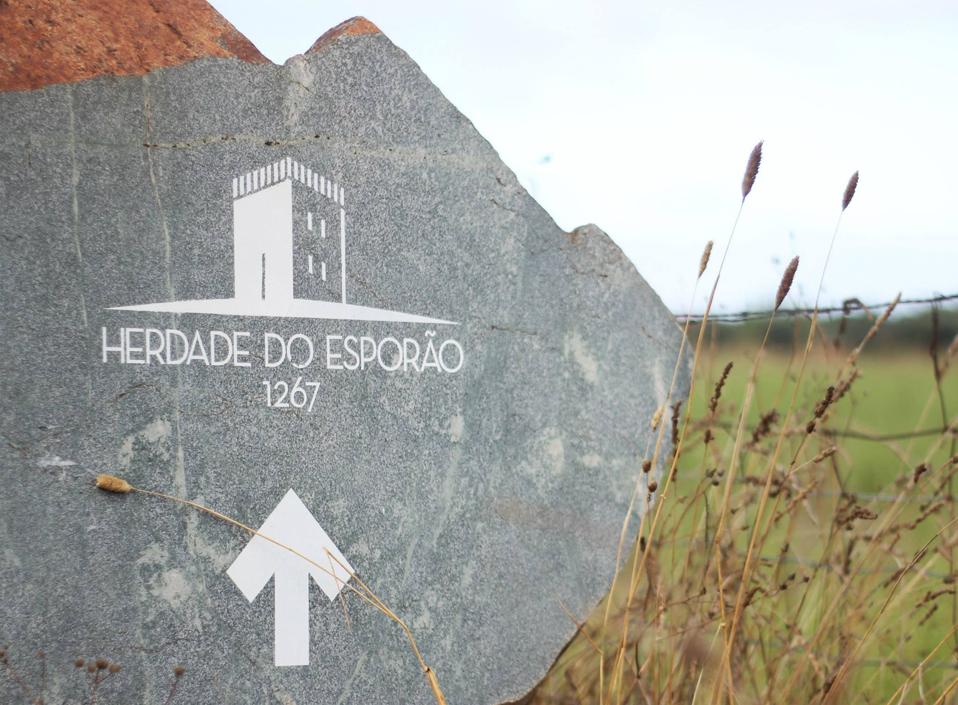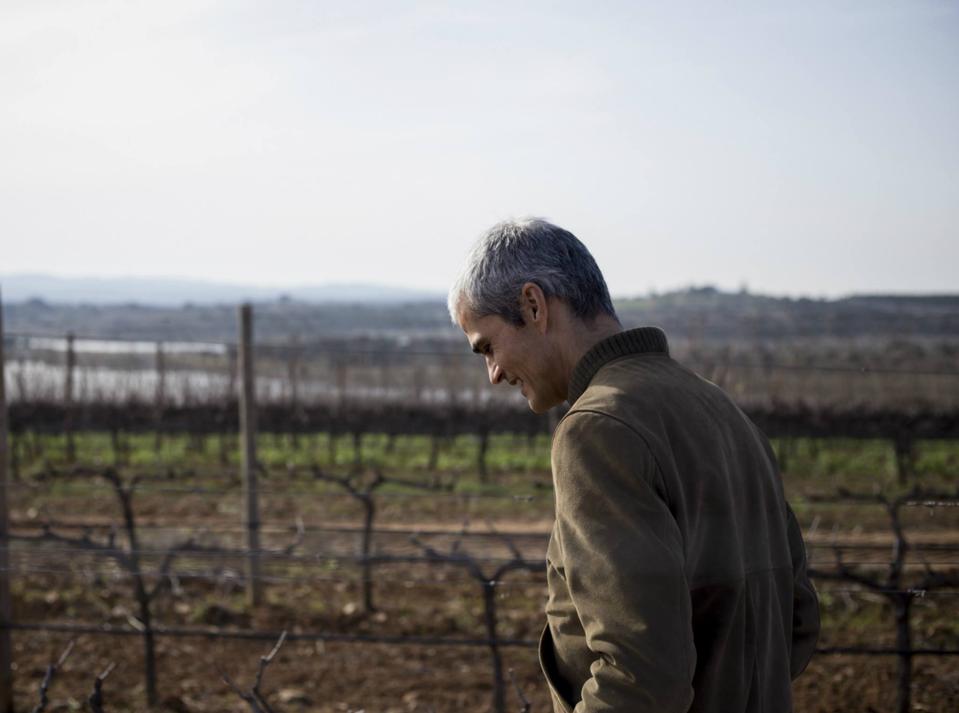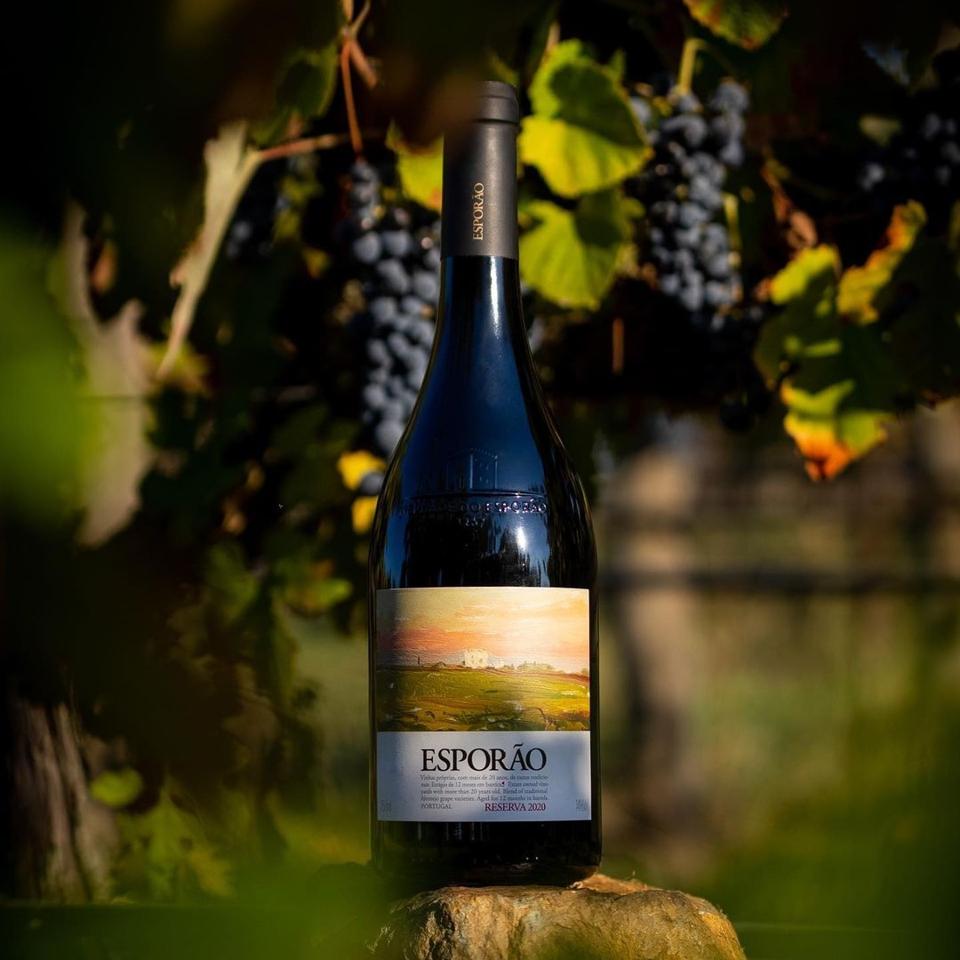The fun and uplifting accordion music made people spontaneously dance around as the delicious smells of lamb stew and sausages filled the room. Wives and husbands broke out in song singing old traditional melodies, reminding themselves of their children as these were the songs they would always sing to them. The accordion player started to smile ear to ear, hearing songs that touched his soul as tears welled up in his eyes and when he couldn’t hold back any longer, they started to stream down his face. An overwhelming mixture of emotions overtook this man; some of his feelings were rooted in the happiness of seeing so much joy but there was a deep sadness as he was away from his family. His wife and kids were in Brazil and he was still in their home country, Portugal, a prisoner of the new government.
Man playing accordion
This accordion player, José Roquette, like the other men imprisoned, was a businessman who, at one time, ran one of the top banks in Portugal. Once he realized he would be sent to prison, he told his wife to leave with their kids simply saying, “All of you need to leave because then, if they kill me, it is just me.” But even with such a grim statement, he kept his spirits up as they allowed him to bring his accordion and permitted the other men’s wives to bring home-cooked food. Some of the guards would smile and laugh during these impromptu parties but others seethed with hate, as to them, in their brainwashed minds, these prisoners kept them in poverty as the propaganda from their new Soviet-like communist regime had reinforced such thoughts.
Even the talk that circulated around the prison, that all the prisoners would be taken to an arena, typically used for bullfighting, and shot dead, didn’t weigh on José as he felt there was nothing he could do about it and at least his family was safe.
Herdade do Esporão
“My father is very brave,” said João Roquette, José’s youngest child, when telling the story of what happened almost 50 years ago. In 1975, when the Soviet Union backed the Portuguese military to install a repressive communist regime, they started throwing people in jail and everything became nationalized. João father had started a winery in the southern wine region in Portugal called Alentejo on an old estate named Herdade do Esporão (a.k.a. Esporão), one of the oldest estates in Europe demarcated in 1267, before the communist regime took over. Eventually, José joined his family in Brazil. After five years of living outside of Portugal, José brought his family back to their Portuguese home when a new election established a democratic socialist government.
Sign to Herdade do Esporão estate
José wanted to get back to working on the winery as the area surrounding their vineyards was a very depressed place with poor people who were, for the most part, forgotten. His dream was to build a wine business that was so successful that it would give opportunities to many of the families struggling in the area. But it wasn’t easy and after José and his partner spent a lot of money on an elaborate winery and cellar, as well as planting new vineyards, they were barely making enough to cover their costs.
Runway in remote village
Despite José’s love for drinking wine, he had no experience in running a wine business, so his partner suggested selling the company and it was known at the time that the illustrious wine family, the Rothschilds, were looking for a wine estate in southern Portugal. José’s partner was in talks with the Rothschild family about visiting them and when it came up if there was an airport near the Esporão estate where they could land their private plane, the partner quickly replied yes. But there was no airport. Instead, they were able to contact a local guy who would make a runway. Even though a significant investment was never recouped, José still dreamed of lifting up the local area, so when the Rothschilds passed on the deal, José bought his partner out. He then hired a general manager with lots of experience to help make Esporão a successful wine producer.
As time went on, Esporão wines became one of the most popular wine brands in Portugal for everyday moderate-priced drinking wines. Yet out of all six of his kids, none showed an interest in taking over which became a problem as José was approaching his golden years. José’s youngest son, João, who also inherited his father’s deep love for music, came back to Portugal after living in London and Barcelona; he was a banker by day and a jazz musician during his off time.
Sheep on the Esporão estate in Alentejo
Despite João working at a bank in Lisbon, he decided he didn’t want to live in the city alone, so he lived in his family’s home in Alentejo with his parents, staying there three days a week. It was a fascinating time for João who was extremely intrigued by the winery, vineyards and how everything intertwined with the tight-knit community, something he desperately missed when he was away. João started to become close friends with the general manager at the winery and one day the general manager told João that he wanted to retire; still, he was conflicted as the business might not be able to continue without him.
João knew the general manager was right as it would be too much for his father to have to find a new person to run the company and João’s siblings had no interest in the wine business so his father would be forced to sell, sell to a company that may not have the same intention of helping the impoverish surrounding villages. But João wasn’t sure if he could do it as he was 32 years old and hadn’t managed more than two people in a bank. He was not the same man as his father who never doubted anything; he did not have the same confidence level. But the winery, vineyards and people had become his home and he couldn’t bear the thought of losing it so he decided to slowly transition into running things with the guidance of his general manager.
It is in the Soil
Bird’s-eye view of Esporão estate
There was no more room to expand the market share in Portugal so João knew that they needed to find a way to build markets in other countries. They needed to start making higher quality wines if exporting was going to be the next goal, so, João and his general manager began reading books and going to conventions where they would meet one of the most respected soil analysis in the world, Claude Bourguignon. Claude believes there are two types of soils for making wine: the first expresses the grape variety and the second expresses the terroir, sense of place. Much of the Herdade do Esporão estate had many of the factors to produce a terroir-driven wine yet the soil needed a lot of work as the samples that Claude examined had very little microbial life. This sent João on a journey of understanding the ins and outs of organically grown grapes.
João Roquette on the Esporão estate
But to João’s dismay, all the organic wines he tried back in 2005 seemed pretty bad as the whole impetus to go organic was to raise the quality of the wines significantly. But as he started to try organic wines around the world, he found some wonderful examples and he realized it wasn’t organic farming that was the problem. Through time, they have been able to make 100% organic work on the estate and isolate seven different types of soils among their almost 1,500 acres of vineyards with 40 types of grape varieties planted throughout as Portugal has a wealth of native grape varieties. To manage such a large and diverse ecosystem, João has hired a full-time biologist and a full-time IT guy to work in partnership with each other as the former will collect information from bioindicators and the latter will work with that data to help the vineyard management team work efficiently and effectively in the various parcels.
Fox on Esporão estate
After a few years of setbacks in the beginning, Herdade do Esporão has been organic for over a decade and now João finds obvious markers of greater quality to the wines, such as balance, concentration, intensity and complexity, yet there is also an energy present that wasn’t there before. It reminds him of being a jazz musician and listening to the recordings where they improvise compared to redoing that arrangement, avoiding the initial mistakes. The polished set they had worked on had “no energy” to it, according to João, as there is something electric and compelling about that first improvisation. When it came to his wines, first he needed to bring the soil back to life, then he needed to keep that life going and not do anything to try to cover that vitality from coming through in the wines.
No Regrets
João is very different from his father and maybe that is part of why they have become such close friends in the process of João taking over the winery. It took a larger-than-life figure like his father to go through such unstable times, to pass on the temptation of starting a great life somewhere else but instead return to his mission of establishing a project that would keep the communities around their estate vibrant.
Esporão estate vineyards
Today, in his own focused and quiet way, João has brought his family’s wine estate to the next level while constantly looking up to his father for inspiration. João’s wife has also expanded the mission as she left a very successful interior designer job to work with elders in remote villages who are the last to carry on their traditional arts and crafts. She commissions original pieces from them with a modern edge that is bringing appreciation from a new generation and expatriates who have moved to Portugal, and hence, commands higher prices that will not only be able to support these older people in their poor towns but encourage the younger people to take up these traditional arts.
Amazingly, João says his father has no regrets or resentment towards what happened all those decades ago when he was incarcerated. He understood that the Portuguese people were lied to, and like in many governments, the officials would rather point the finger at a particular group as causing the people’s struggles instead of taking responsibility themselves as paid politicians. His father loved the U.S. and even though it did enter his mind that the family should move to America during Portugal’s dark time, he knew that once the communist regime was thrown out, there would be a focus on improving the economies in the cities but there would be no assistance for the people in the remote villages. And all those memories – playing the accordion, people dancing and laughing, as those communities might be poor financially but are wealthy in enjoying what is most precious in life, lived in his heart.
And today, his father gets to witness with his own eyes that his mission has gone way beyond his wildest dreams as 300 families from those remote villages are employed by Esporão and it has been one of the most gratifying things he has done; so yes, no regrets whatsoever, only gratitude.
Herdade do Esporão Reserva
Esporão has also invested in buying wine estates in the North, one in Vinho Verde called Quinta do Ameal and one in the Douro Valley, Quinta dos Murças. The vineyards in the Douro Valley and Alentejo are 100% organic but the Vinho Verde is not 100% organic as it is wet and cool in that area, so more difficult to do organic every year.
2021 Herdade do Esporão ‘Monte Velho’
2021 Herdade do Esporão ‘Monte Velho’, Alentejo, Portugal: Red blend of 40% Aragonez, 35% Trincadeira, 20% Touriga Nacional and 5% Syrah. Rich blueberry fruit with hints of lilacs and blackcurrant leaf with round tannins with an overall harmony, retailing for only $15.
2019 Herdade do Esporão, Reserva, Alentejo, Portugal: Red blend of 30% Aragonez, 20% Cabernet Sauvignon, 20% Trincadeira, 15% Alicante Bouschet, 5% Syrah, 5% Touriga Nacional and 5% Touriga Franca; all from the Esporão estate vineyards that are 100% organic. Multilayered juicy fruit with red cherries, blackcurrants and warm blueberries with silky texture, and crushed rocks and cocoa nibs on the long finish with lots of concentration. Impressive especially considering it only retails at $25.
2017 Herdade do Esporão ‘Torre do Esporão’
2017 Herdade do Esporão ‘Torre do Esporão’, Alentejo, Portugal: Red blend of Aragonez, Touriga Franca, Touriga Nacional and Alicante Bouschet from their oldest vineyards. An enchanting nose with raspberry tart, violets and stony minerality with an exquisite balance to this wine that will make it irresistible to anyone who tries it. It has finely etched tannins with a supple texture and nuanced layers of spice and pristine red fruit on the extraordinarily long finish. All finesse with this wine. Retailing at $300. A rare wine, as this is the fourth release, and it only comes out in outstanding vintages. The vintages released are 2004, 2007, 2011 and 2017. They have a special winery just for this wine and the Private Selection, and so, in years when they don’t make the Torre do Esporão, they will make the Private Selection instead. This special winery has lagares for foot-treading the grapes. They will launch 75% of the 2017 now and in five years, release the other 25% onto the market.
2021 Ameal Loureiro
2021 Ameal, Loureiro, Vinho Verde, Portugal: 100% Loureiro grape variety. Lemon zest and citrus blossom on the nose with an underlying note of chalky minerality with a good mid-palate weight, ripe white peach flavors and mouthwatering acidity. Vinho Verde made its name on quaffable wines but smaller producers, in the past, never made it to export markets, so the serious, high-quality white wines of the area never made it to the U.S. This is one such property that has been a pioneer in making single-varietal Loureiro, an indigenous white grape, wines for 50 years and these wines can age beautifully for a couple of decades as they take on Riesling-like qualities with age. This property belonged to João’s friend’s father as he was ready to retire, so João bought the estate. João said that Loureiro often produces large yields, hence, the wines can be thin and highly acidic, which is acceptable in a blend for quaffable, fizzy wines. But these vines are older, producing lower yields, and the vineyard is located in the warmer Lima Valley, hence, the wines have more concentration that balances out the high acidity. João also makes two other bottlings of this estate, one that uses concrete eggs and the other is a Reserva using 2,000-liter Austrian oak tuns. Retailing at $18.












